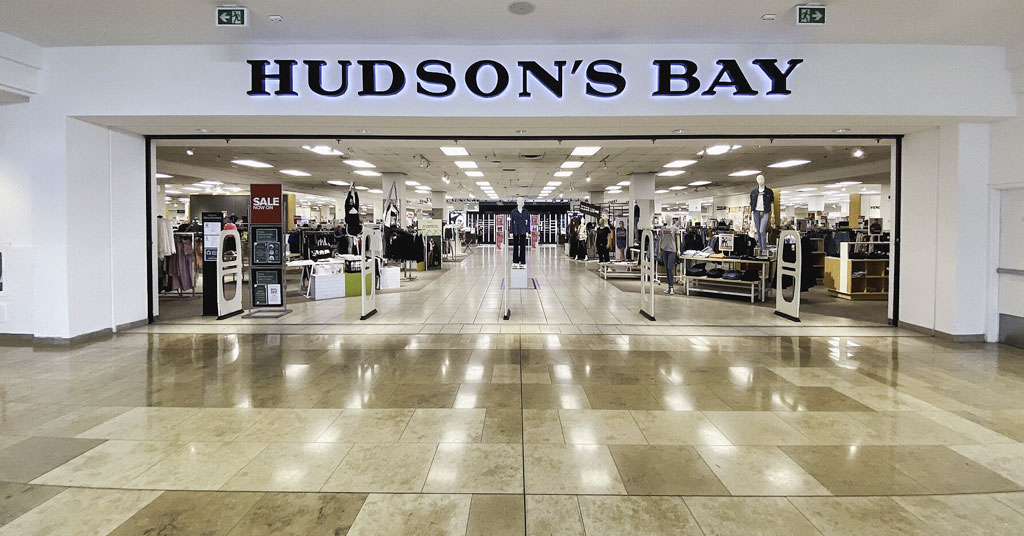
BC Hudson’s Bay Workers Fight for Higher Wages to Keep Pace With Rising Costs of Living
Workers want, need, and deserve more money to meet inflation United Steelworkers union says
Hudson’s Bay workers in Kamloops, BC have been on strike for nearly five months, fighting for higher wages to meet rising living costs. The workers rejected Hudson Bay’s initial offer which fell far short of expectations, according to their union.
United Steelworkers Union (USW) Local 1-417, which represents the workers, said that the employer came to the bargaining table with a one per cent wage increase, which roughly amounts to $0.17 an hour.
“With inflation going up drastically—six per cent last year—a one per cent wage increase is not enough,” USW financial secretary Jordan Lawrence told PressProgress.
Workers at Hudson’s Bay in Kamloops have been on strike since December 10, 2023, fighting for a wage increase that reflects BC’s rising living costs.
“As of 2023, the living wage in Kamloops was 20.91 CAD – almost four dollars more than what Hudson’s Bay pays its sales associates,” according to a statement released by the union.
The parties met on January 8, 2024, with the assistance of the BC Labour Relations Board in an attempt to resolve the labour dispute.
“We have bargained three collective agreements in the past five years and each time the company came in with multiple proposals looking for concessions, not necessarily monetary but language concessions—rights for which the members have fought for 30 years,” Lawrence said.
A language concession is an employer trying to roll back gains that had been made in previous agreements—going backwards.
“For months, we’ve heard the line that ‘it’s the economy.’ Yet, at no time have they ever offered to show us their books to prove that they’re not turning a profit in Kamloops,” Marty Gibbons, USW Local 1-417 president said in a statement.
While concessions were still on the table, Lawrence said he did not want to get into specifics on the bargaining language employed by the company. He said that, as of today, there are no expected changes, and there is no moving forward. “We could have the workers working tomorrow if the employer offers something higher than one per cent.”
Tiffany Bourré, vice president of corporate communications, public relations, events, owned social, and heritage at Hudson’s Bay, said the company is committed to the bargaining process. “We hope to find a resolution soon and we look forward to re-opening the Kamloops store for our customers and associates,” Bourré told PressProgress.
McGill University sociology professor Barry Eidlin says this is a common bargaining pattern in Canada, where there is a mismatch between employee wage expectations and the employer’s offer.
“The problem is generally not that the companies are on the ropes, and they cannot afford to pay their workers. It’s a question of willingness to pay,” Eidlin told PressProgress. “2023 saw the fourth largest number of workers go on strike in Canadian history … The rejection of the initial offer reflects the workers’ rising expectations.”
The companies haven’t been accustomed to the rising expectations for many years now, Eidlin says, and they need to adjust to the new reality.
“The new reality is that the workers have more bargaining power.”
One of the most potent bargaining chips workers hold to compel their employers to improve wages and working conditions is withholding strikes.
“If Kamloops Hudson’s Bay workers win a higher wage increase, eventually it will have to spread across the rest of the stores, and that’s a good thing,” Eidlin said.
Increased purchasing power from higher wages drives economic growth as workers use this money to support the economy.
“Rather than denying workers a wage increase—in many cases, long overdue, Eidlin says, we should start celebrating and encouraging their power to demand.”
“If the strike persists, the danger here is that Hudson’s Bay has other streams of revenue, thereby leaving the Kamloops workers to starve. The union escalating the picketing to other store locations might pressure the company to come to the bargaining table with a fair and equitable agreement.”
The provincial government could intervene through a more stringent arbitration to maintain a healthy collective bargaining environment, Eidlin says, where employers cannot stick their heads in the sand and not listen to the workers’ grievances.
Correction: An earlier version of this article quoted Professor Barry Eidlin indicating that 2023 saw the fourth largest strike in Canadian history. In fact, Eidlin said 2023 saw the fourth largest number of workers go on strike in Canadian history, going back to when data on strikes first began being collected in 1901.
Our journalism is powered by readers like you.
We’re an award-winning non-profit news organization that covers topics like social and economic inequality, big business and labour, and right-wing extremism.
Help us build so we can bring to light stories that don’t get the attention they deserve from Canada’s big corporate media outlets.
Donate



